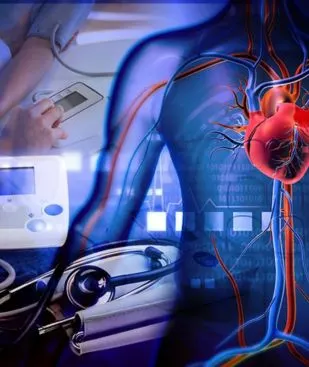Comprehensive Hypertension Management
Our hypertension management program provides personalized care to help patients control blood pressure, reduce cardiovascular risks, and improve long-term health outcomes.
Understanding Hypertension

Blood Pressure Categories
| Category | Systolic (mm Hg) | Diastolic (mm Hg) |
|---|---|---|
| Normal | < 120 | and < 80 |
| Elevated | 120-129 | and < 80 |
| Hypertension Stage 1 | 130-139 | or 80-89 |
| Hypertension Stage 2 | ≥ 140 | or ≥ 90 |
Our Comprehensive Hypertension Management Approach
Our hypertension program led by Dr. Abdul Razzaq combines evidence-based treatments with personalized lifestyle recommendations to effectively manage blood pressure:
Treatment Options for Hypertension
We employ a comprehensive approach to hypertension management that includes both lifestyle modifications and pharmacological treatments when necessary.
- DASH Diet: Dietary Approaches to Stop Hypertension emphasizing fruits, vegetables, and low-fat dairy
- Sodium Reduction: Limiting salt intake to less than 2,300mg daily (ideally 1,500mg)
- Regular Exercise: At least 150 minutes of moderate-intensity activity weekly
- Weight Management: Achieving and maintaining a healthy BMI
- Alcohol Moderation: Limiting to 1 drink daily for women, 2 for men
- Smoking Cessation: Complete tobacco avoidance
We carefully select antihypertensive medications based on individual patient characteristics:
- Thiazide Diuretics: Often first-line treatment, help reduce fluid volume
- ACE Inhibitors: Block formation of angiotensin II, a chemical that narrows blood vessels
- ARBs: Block the action of angiotensin II
- Calcium Channel Blockers: Relax blood vessels by preventing calcium from entering cells
- Beta Blockers: Reduce heart rate and cardiac output
Most patients require two or more medications to achieve blood pressure control.
Regular monitoring is essential for effective hypertension management:
- Use validated automatic, cuff-style, bicep (upper-arm) monitors
- Check blood pressure at the same time daily, preferably morning and evening
- Rest for 5 minutes before measurement
- Take 2-3 readings 1 minute apart and record all results
- Bring your log to every appointment
- Avoid caffeine, exercise, and smoking for 30 minutes before measuring
Important Note
Hypertension is often called the "silent killer" because it typically has no warning signs or symptoms. Regular screening is essential, as untreated high blood pressure can lead to heart attack, stroke, kidney damage, and other serious health problems.
When to Seek Immediate Care
While hypertension typically develops gradually, certain symptoms require immediate medical attention:
- Severe headaches
- Chest pain or irregular heartbeat
- Vision changes or blurriness
- Difficulty breathing
- Severe anxiety or confusion
- Nosebleeds without cause

